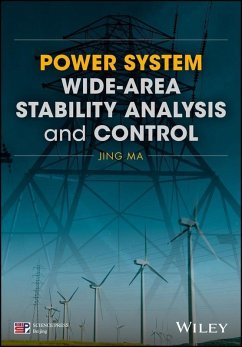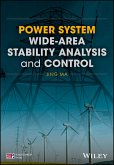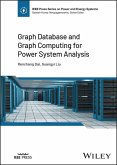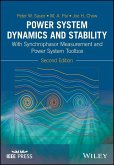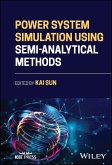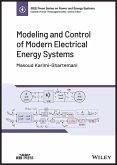An essential guide to the stability and control of power systems integrating large-scale renewable energy sources
The rapid development of smart grids and the integration of large scale renewable energy have added daunting new layers of complexity to the long-standing problem of power system stability control. This book offers a systematic stochastic analysis of these nonlinear problems and provides comprehensive countermeasures to improve power system performance and control with large-scale, hybrid power systems.
Power system stability analysis and control is by no means a new topic. But the integration of large scale renewable energy sources has added many new challenges which must be addressed, especially in the areas of time variance, time delay, and uncertainties. Robust, adaptive control strategies and countermeasures are the key to avoiding inadequate, excessive, or lost loads within hybrid power systems. Written by an internationally recognized innovator in the field this book describes the latest theory and methods for handling power system angle stability within power networks. Dr. Jing Ma analyzes and provides control strategies for large scale power systems and outlines state-of-the-art solutions to the entire range of challenges facing today's power systems engineers.
Power System Wide-area Stability Analysis and Control is must-reading for researchers studying power system stability analysis and control, engineers working on power system dynamics and stability, and graduate students in electrical engineering interested in the burgeoning field of smart, wide-area power systems.
The rapid development of smart grids and the integration of large scale renewable energy have added daunting new layers of complexity to the long-standing problem of power system stability control. This book offers a systematic stochastic analysis of these nonlinear problems and provides comprehensive countermeasures to improve power system performance and control with large-scale, hybrid power systems.
Power system stability analysis and control is by no means a new topic. But the integration of large scale renewable energy sources has added many new challenges which must be addressed, especially in the areas of time variance, time delay, and uncertainties. Robust, adaptive control strategies and countermeasures are the key to avoiding inadequate, excessive, or lost loads within hybrid power systems. Written by an internationally recognized innovator in the field this book describes the latest theory and methods for handling power system angle stability within power networks. Dr. Jing Ma analyzes and provides control strategies for large scale power systems and outlines state-of-the-art solutions to the entire range of challenges facing today's power systems engineers.
- Features nonlinear, stochastic analysis of power system stability and control
- Offers proven countermeasures to optimizing power system performance
- Focuses on nonlinear time-variance, long time-delays, high uncertainties and comprehensive countermeasures
- Emphasizes methods for analyzing and addressing time variance and delay when integrating large-scale renewable energy
- Includes rigorous algorithms and simulations for the design of analysis and control modeling
Power System Wide-area Stability Analysis and Control is must-reading for researchers studying power system stability analysis and control, engineers working on power system dynamics and stability, and graduate students in electrical engineering interested in the burgeoning field of smart, wide-area power systems.
Dieser Download kann aus rechtlichen Gründen nur mit Rechnungsadresse in D ausgeliefert werden.

